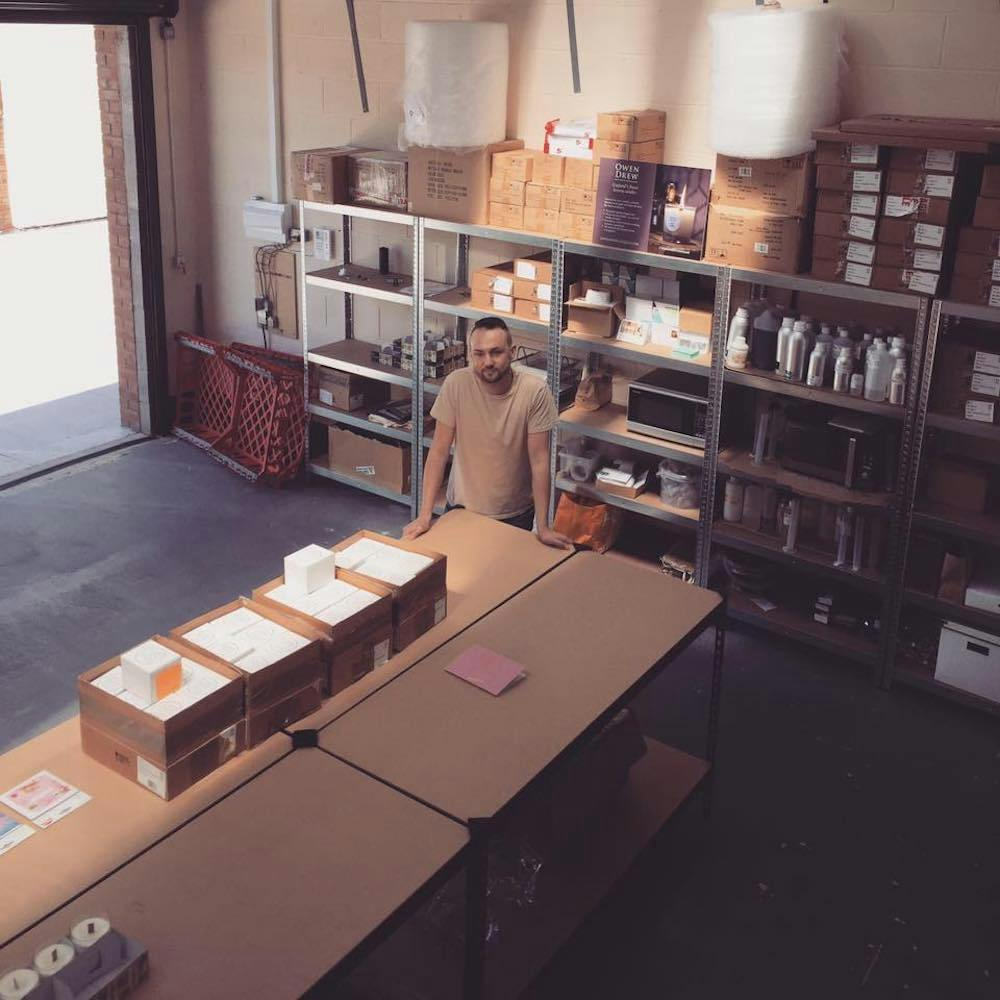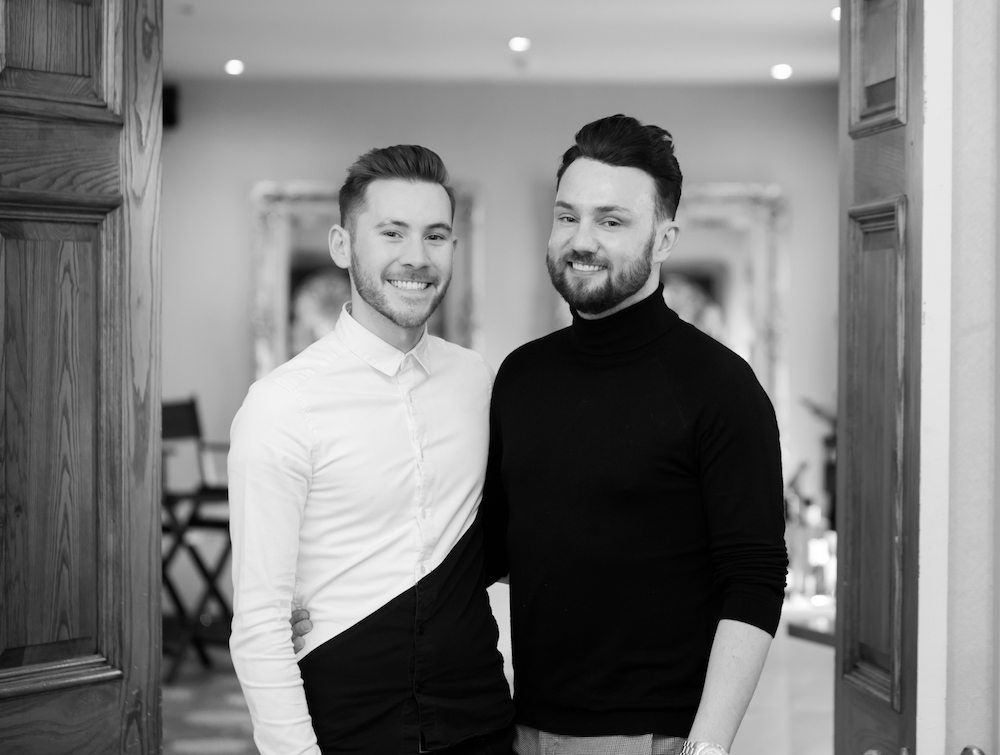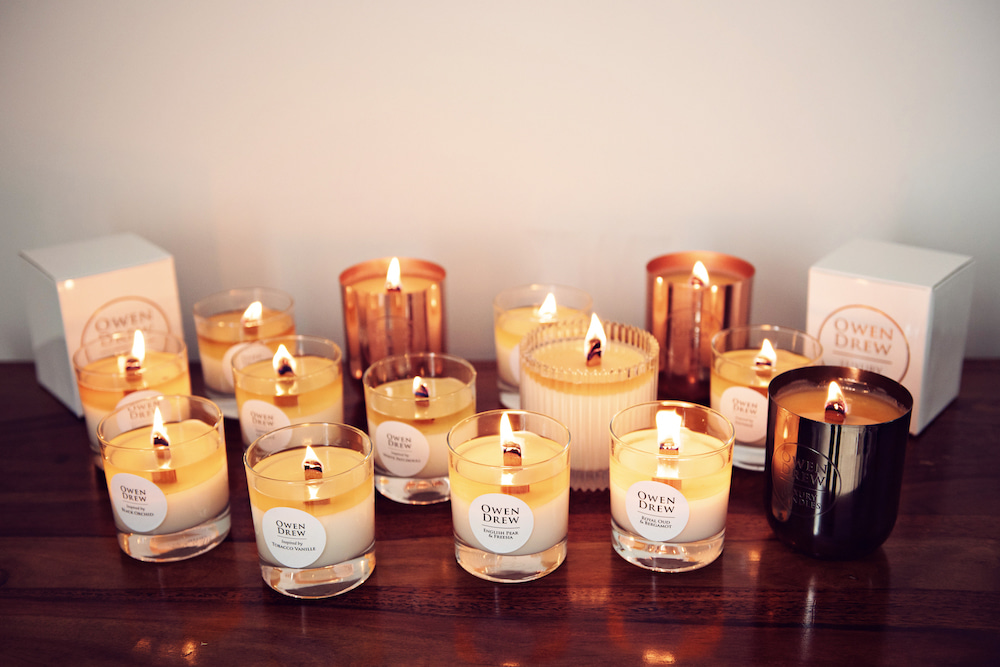
Being diagnosed with a mental health condition can be a scary time for many people, but for Drew Cockton, it helped him make sense of some of his personality traits – creative and energetic, with a risk-taking attitude. While managing his bipolar disorder hasn’t always been easy, he recognises that these traits have actually helped him to follow his dreams
When I was 23 and fresh out of university, I embarked on a wildly optimistic venture by opening a 13-bedroom hotel on Manchester’s Canal Street in the gay quarter. I was working 14–15 hour days, and absolutely loving it, but I was too young and totally inexperienced for the challenge.
After six months of this my body started to pack in, and I sank into a depression – the worst I had ever endured – and, at times, I felt suicidal. Within nine months, the business had closed, with the bailiffs showing up. My mother was extremely concerned, and took me to our GP. I was referred to a specialist, and was diagnosed with bipolar disorder.

Drew at his graduation
Before my diagnosis, I had only ever associated the condition with negative things. I would be a wealthy man if I had a pound for every time I’ve heard people say “he’s bipolar” as an insult when referring to someone as hot-headed or unpredictable. But in reality, I was neither of those things, and although I have the condition, to my knowledge nobody has used it against me.
I read up about bipolar disorder and learnt that far from being a condition where your mood changes by the hour, it is an illness where you can go from long periods of mania to equally long periods of depression. I recognised that much of my life had been characterised by periods where I felt on top of the world, usually followed by times when I felt unable to drag myself out of bed.
Prescribed antipsychotics, I piled on weight as a side-effect. At the same time I lost all of my hair because of alopecia areata induced by stress. I turned to drink as a coping mechanism, and a way to boost my confidence after my appearance changed so drastically. Eventually, it all became too much and I moved back home, to be nursed back to health by my mother.
In addition to weight gain, that first medication (Abilify) seemed to numb my senses; I felt permanently sad. I didn’t find anything entertaining, and just seemed to exist. I thought that my life was over and, while I was only 24 years old, my best years were behind me.
I switched to another medication (Quetiapine) which was better suited to me, and I started to exercise and watch what I ate. This did become slightly obsessive and I would be hit with feelings of immense shame and guilt if I missed the gym or ate unhealthily.
A year later, in 2011, I felt a hundred times better and so began to look for work. I finally felt “normal” and that I was on track. I even met someone; we fell madly in love, and got engaged – although this was to end three years later, leaving me heartbroken. In hindsight, I think he struggled with some aspects of my condition – my reluctance to go out partying, my lethargy and tiredness.

But in 2015, I met my partner Mike, and now feel really happy. I was reluctant to tell him about my condition when we started dating, but after about six weeks we had a conversation about my illness and, much to my surprise, he was absolutely fine with it.
In fact, Mike said he’d known for a while, due to me leaving my prescription “all over the house”! He was very understanding and promised to support me.
While there are, of course, disadvantages to having bipolar, and I have experienced them, I’ve also benefited from having it, which makes me thankful for being born the way I am.
This time two years ago, I was a frustrated manager in financial services, dreaming of being able to channel my creative energy. As a home-fragrance enthusiast, I started making scented candles in my kitchen and giving them to my friends and family. After receiving amazing feedback about the products, I began selling them at craft fairs and through social media.
It was around Christmas 2016 that demand for my candles skyrocketed, with friends of friends and even strangers calling at my home to buy my products as presents.
It was a lot of hard work and late nights, but somehow, I managed to get everything done alongside my demanding job – which included a lot of European travel. When the reality of office drudgery in January set in, I decided I was going to do what made me happy – being artistic and creative – and that I would leave my position in the company to pursue this.
Behind the scenes, my family were worried that I was having a manic episode. It seemed incredulous to them that I would quit my secure job for a life of stress and anxiety, making and selling candles, in an already saturated market.
With hindsight, perhaps I was having an “episode”. I had unusually high levels of energy, was extremely productive, creative, and was unable to see the enormous, and perhaps foolish, risk I was taking.

Drew and Mike
Often people with bipolar can be creative and have huge amounts of energy, which they are able to constructively channel, and I saw this as a positive. Once I decided I was going to do my business, I dedicated myself to it completely, and have been able to take it from the kitchen table to a large business in 12 months.
Fast-forward 18 months and my business – Owen Drew Candles – is thriving, employing 10 people in Merseyside. My partner Mike joined me in the business six months later, and our candles are now stocked in more than 30 shops nationwide and shipped across the globe. In May, we were crowned best start-up business at the Small Awards in London, while Vogue magazine described our candles as “Simply gorgeous!” We’ve even gained a fan in Paris Hilton.
The first candle I designed was “White Linen & English Lavender”, which is packed with essential lavender oil – something I’ve always loved because of its soothing properties and the way it promotes quality sleep, which is so important for mental health. For each of these candles sold we give a donation to the mental health charity Mind, which is a cause extremely close to my heart.
While I still have days where I feel incredibly low, having bipolar has given me some of the key attributes to make my business succeed – energy, creativity, and a risk-taking attitude.
I know it’s a cliché to be proud of yourself and not change the way you were born, but for me, it couldn’t be more true. My life would have probably been 10 times easier without bipolar, but I also know it wouldn’t have been nearly as interesting.

Owen Drew Candels
Telling my story has been a huge thing for me, as I am typically a very private person. But I hope that it encourages people to accept themselves for who they are, particularly if they have just received a diagnosis of bipolar. I wouldn’t change who I am for the world, and know my life is infinitely richer for having had the condition.
Throughout October Happiful readers can use the code MIND10 to increase the donation to £2.50. To find out more visit owendrewcandles.com
Drew’s story is a remarkable one, not only has he managed to cope with his condition, but he has used it to enable him to thrive and be happy.
Sometimes being diagnosed can be a double-edged sword – on the one hand it allows us to access support, and on the other it can feel like a label being imposed on us. What Drew came to understand was that he is unique. He isn’t a label, but a creative and talented human being. Once we accept ourselves for who we are, we can use our strengths to find happiness and fulfilment!

Join 100,000+ subscribers
Stay in the loop with everything Happiful
